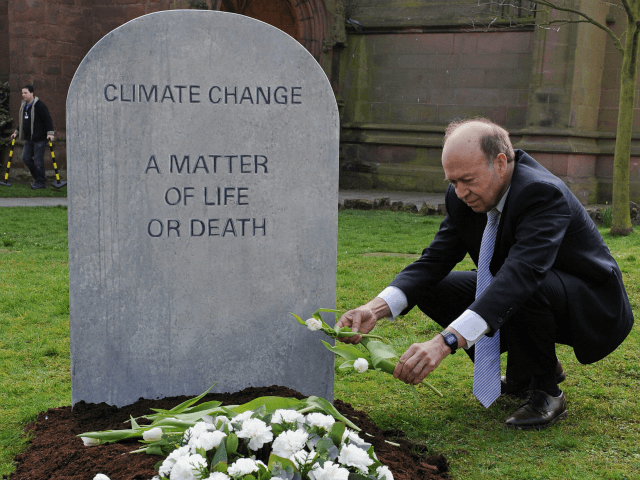The prestigious Lancet medical journal has published a disingenuous editorial falsely attributing seven million deaths from air pollution to “climate change.”
“The effects of climate change are inextricably entwined with health,” the May 12 editorial begins, “ranging from the WHO estimate of 7 million deaths from breathing polluted air indoors and outdoors” to a series of other harmful consequences.
This statement is patently false, and the Lancet editors know it.
The World Health Organization (WHO) report to which the editorial refers makes no mention of climate change and speaks only of the adverse health effects of polluted air, a different phenomenon.
According to the WHO report, “around 7 million people die every year from exposure to fine particles in polluted air that penetrate deep into the lungs and cardiovascular system, causing diseases including stroke, heart disease, lung cancer, chronic obstructive pulmonary diseases and respiratory infections, including pneumonia.”
All of these potentially fatal pathologies are causes by “exposure to fine particles in polluted air” and not by global warming.
In its infographic on the causes of air pollution, the WHO lists six sources of dangerous fine particulate matter, none of which is related to climate change. The six sources of air pollution are industry and energy supply, dust, agricultural practices, transport, waste management, and household energy.
Among the six solutions proposed by WHO for combatting air pollution, not one of them touches on carbon dioxide emissions, for the simple reason that CO2 is not a pollutant and is not harmful to human health. Unlike pollutants, carbon dioxide is odorless, colorless, and most importantly, non-toxic.
The WHO database collects annual mean concentrations of fine particulate matter. Those that pose “the greatest risks to human health” are sulfate, nitrates, and black carbon, they observe.
The WHO report notes that deaths relating to air pollution occur overwhelmingly in third-world countries where large segments of the population “still do not have access to clean cooking fuels and technologies in their homes.”
“More than 90% of air pollution-related deaths occur in low- and middle-income countries, mainly in Asia and Africa,” WHO declares, “followed by low- and middle-income countries of the Eastern Mediterranean region, Europe and the Americas.”
“The highest ambient air pollution levels are in the Eastern Mediterranean Region and in South-East Asia, with annual mean levels often exceeding more than 5 times WHO limits, followed by low and middle-income cities in Africa and the Western Pacific,” the report states.
In general, “ambient air pollution levels are lowest in high-income countries, particularly in Europe, the Americas and the Western Pacific,” it concludes.
The Lancet editorial shamelessly links lethal air pollution to global warming, without bothering to attempt to establish a real connection between the two.
It then goes on to speak of how the horrible effects of air pollution can be averted by enacting measures to lower carbon dioxide emissions, which, again, is demonstrably false.
The overtly political editorial seeks to persuade a naïve public to enact policy to reduce CO2 emissions by making them think that this will curb deadly air pollution, which it will not.
“Climate change legislation is a central concern across government at all levels, and is not solely about the changing climate, but is embedded in public health policies,” the editors contend.
The Lancet has been a reputable medical journal since its founding in London in 1823. With this unworthy essay, the editors have besmirched the journal’s hard-earned good name by bowing to ideology and political interests.
When propaganda poses as science, everyone loses.
Follow Thomas D. Williams on Twitter Follow @tdwilliamsrome

COMMENTS
Please let us know if you're having issues with commenting.